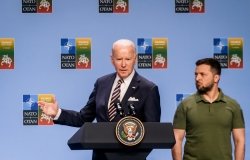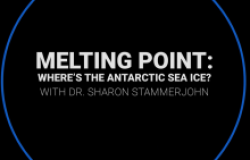The Wilson Quarterly Celebrates its 30th Anniversary
The Wilson Quarterly, the Wilson Center's quarterly magazine, is celebrating its 30th anniversary with an issue devoted to the future, the topic of its inaugural 1976 issue in the age of the energy crisis and ominous predictions.
The Wilson Quarterly is celebrating its 30th anniversary with an issue devoted to the future, the topic of its inaugural 1976 issue in the age of the energy crisis and ominous predictions. Today the WQ takes a fresh look ahead in its "Reading the Future" Winter 2006 issue. The magazine itself has been completely redesigned, as it marks this anniversary. The Wilson Quarterly is a general-interest magazine published by the Woodrow Wilson International Center for Scholars in Washington, D.C.
In "Has Futurism Failed?" authors David Rejeski and Robert L. Olson recount that futurism is little more than a half-century old, having come into vogue in the era of Alvin Toffler and Herman Kahn, the genius who saw a brighter future even under the shadow of a mushroom cloud. Kahn's optimism has been a hallmark of American thinking, which has evinced faith in the possibilities—-rather than the perils-—of tomorrow, as Martin Walker details in "America's Romance with the Future." He asks whether America's policies today lack yesteryear's foresightedness.
Futurists fell out of favor in the past few decades, humbled by inaccurate predictions, including, as Nicholas Eberstadt chronicles in "Doom and Demography," their apocalyptic visions of population disasters. Having learned from their mistakes, according to Rejeski and Olson, futurists are now making a comeback.
In "The Next 30 Years," noted writers speculate about the coming three decades, some with optimism, some with humor, others with a jaundiced eye:
- Joel Garreau on whether we'll remain fully human,
- Camille Paglia on the how America's culture wars can be resolved,
- Bjørn Lomborg on why the biggest environmental issue isn't the one you think,
- Robert Wright on how globalization is making hatred more lethal,
- Barbara Wallraff on whether English will become the universal language,
- Laura Kipnis on the future of love,
- Janna Malamud Smith on whether adolescence will grow even longer,
- Wilfred M. McClay on the fate of religion,
- James Morris on the food we'll put on our plates, and
- Stephen M. Younger on giving peace a chance.
In addition, Edward Tenner explains why some futurists predict a brighter future and others look through the crystal ball darkly in "The Future Is a Foreign Country." Richard Betts explores the dilemmas created by predicting terrorist attacks in "How to Think about Terrorism," and Andrew Stark shows why blogs have turned the quest for immortality upside down.
The Winter 2006 issue goes on sale Monday, January 16. To request more information or a review copy, contact managing editor James Carman at (202)691-4023 or wq@wilsoncenter.org. Some articles will be posted on www.wilsonquarterly.com.
The Woodrow Wilson International Center for Scholars is the living national memorial to President Wilson established by Congress in 1968 and headquartered in Washington, D.C. It is a nonpartisan institution, supported by public and private funds, engaged in the study of national and world affairs. The Center establishes and maintains a neutral forum for free, open, and informed dialogue.









